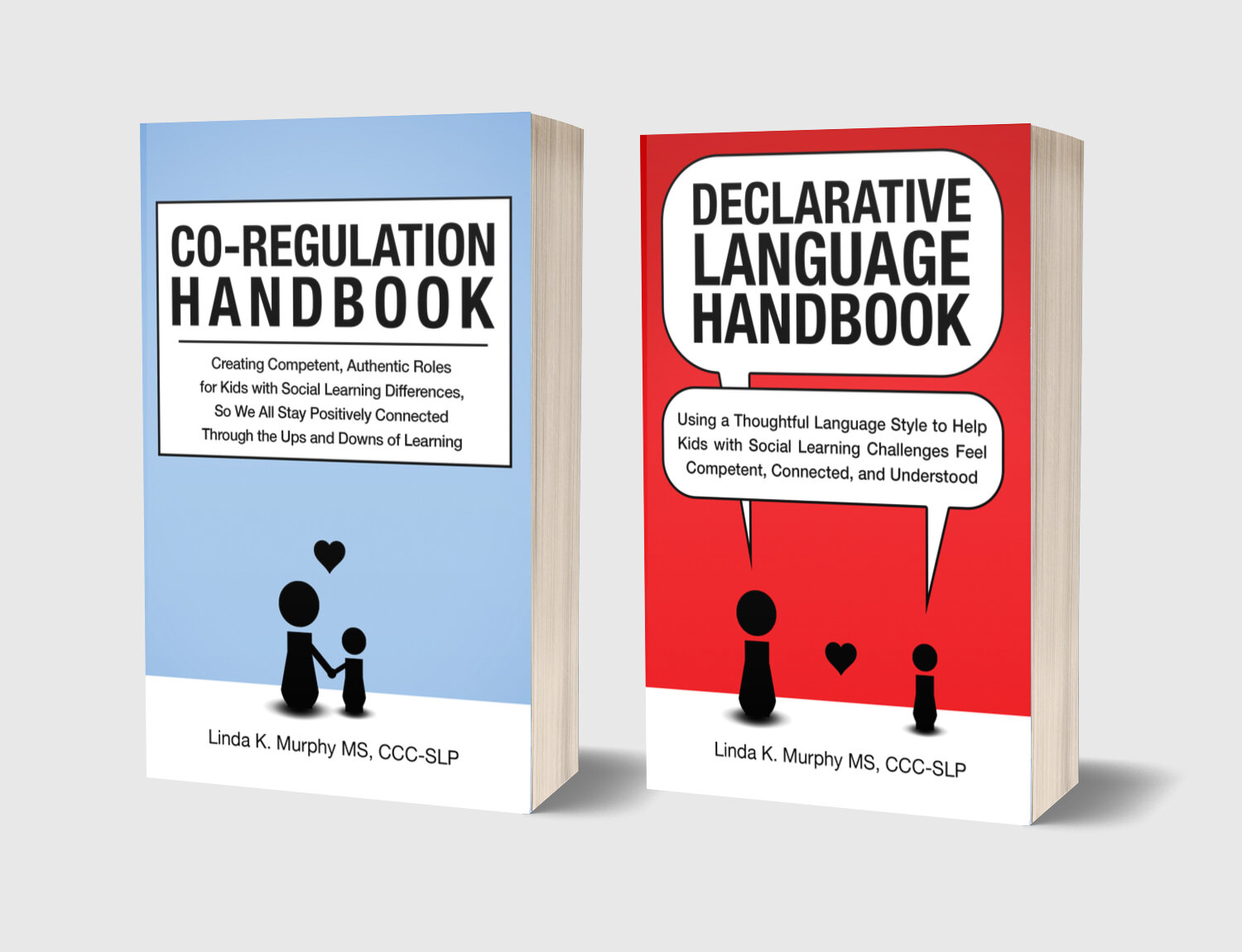-

How do I respond when my learner asks questions they know the answer to?
The meaning of question-asking is likely highly individual to each person. I am sure it serves different purposes, for different people, at different times…keep reading
-

How can I help my child take responsibility after a challenging situation?
Making a repair simply means that we take responsibility for our actions that caused damage… keep reading
-

How can declarative language help my picky eater?
In this post, we want to explore the power of our language when engaging kids in mealtime opportunities where they feel less sure, less confident, less comfortable, and perhaps even worried or scared… keep reading
-

How can I use declarative language to help my child improve their interoceptive awareness?
I have recently enjoyed learning about interoception from Kelly Mahler, OT! Interoception is our ability to sense how our body is feeling. For example, we can tell when we are hungry, thirsty, tired, too hot, too cold, and so on. Being able to read our own internal cues is essential for successful self-regulation. … keep reading
-

How is declarative language different from passive aggressive communication?
Is declarative language passive aggressive? I’ve heard this question more than once lately, so I decided to hit it head on and talk about it here… keep reading
-

Any examples of how I can use declarative language to help my child appreciate someone else's perspective?
In this video, Desmond pitches an idea! I use declarative language to help him become aware of my perspective as well as his own… keep reading
-

Why is it so important to be quiet after making a declarative statement?
Silence - or the idea of "pacing" - is a really important partner to declarative language. In order to help kids access higher level thinking, and integrate information from… keep reading
-

How can I use declarative language & co-regulation with adults who have dementia (or other neurogenic communication disorders)?
I have heard from other speech language pathologists, who work with adults with dementia and other neurogenic communication disorders, that declarative language is helpful for this population as well… keep reading
-

What is productive uncertainty and why is it important for learning?
Productive uncertainty is the spot where we feel competent because we are doing something that is familiar to us, yet also excited because there has been a small change… keep reading
-

How can I help my learner get better at accepting their mistakes?
Making mistakes, and then owning up to these mistakes, can be hard for many kids. Maybe they don’t like feeling vulnerable. Maybe they don’t like the feeling of knowing they did something wrong... keep reading
-

Is it okay if it doesn't always work right away?
Freddie and I are back with a video this week. Does your child have trouble going outside their comfort zone? Mine too! In this clip, we model how things are often a work in progress... keep reading
-

You talk a lot about "guiding." What does that mean?
Enjoy this clip from week 3 of our 8-week Declarative Language Workshop. I discuss a 𝐠𝐮𝐢𝐝𝐢𝐧𝐠 𝐦𝐢𝐧𝐝𝐬𝐞𝐭, which is essential when communicating in a declarative way… keep reading
-

Why should I move away from the idea of "making eye contact"?
Enjoy this clip from Declarative Language Workshop where I help shift our thinking away from having kids "make eye contact" and towards our appreciation and understanding of "visual referencing"… keep reading
-

How can I help my child be okay with different opinions?
Sometimes it can be hard for kids to accept or sit with an opinion that is different than their own. Yet, in life, it is important to become comfortable doing so…keep reading
-

What about when I lose my cool?
In this video, Freddie and I talk about a time I lost my temper, because really - this happens to all parents no matter how hard we try to stay calm! I discuss the things I think about… keep reading
